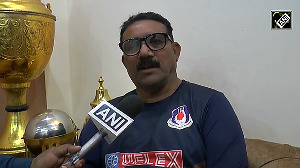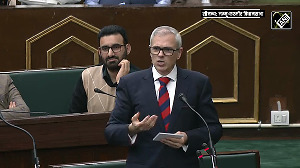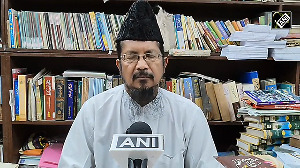Brushing aside the demand for quitting the post of army chief, Pakistan President Pervez Musharraf has said his uniform is like a second skin, which he cannot remove.
The general, who is seeking re-election to the post of the president by the existing assemblies later this year, has said that he is proud to be an army man, and the uniform is like his second skin, adding, "Then how can I even think of taking it off."
Musharraf told BBC Urdu in an interview that he took over as president due to the turmoil in the country, otherwise he loved to be an army man. He said that his uniform could not be separated from him.
British High Commissioner to Pakistan Robert Brinkley had last week asked Musharraf to "separate" the offices of the president and the army chief this year as demanded by the Commonwealth.
Various political parties in Pakistan have also been demanding that Musharraf shed his military uniform. PPP leader Benazir Bhutto had recently said that any deal with Pervez Musharraf was not possible while he continued to be the chief of army and president.
Asked about the crisis triggered by the suspension of the chief justice, Musharraf said he was waiting for the full court's verdict and added that he would accept it in any case.
However, he refused to answer the question if he would fulfil his "moral responsibility" if the full court's decision was in the chief justice's favour.
Musharraf maintained that the army did not enter Pakistani politics on its own, rather it was invited to take care of the civil administration.
Musharraf claimed that the army strengthened Pakistan, but opposition political parties were "propagating a negative image of the armed forces."
Justifying the army's presence in various institutions of the country, he said, "When politicians do not know how to run the country's affairs, the army has no choice, but to step in and put things right."
He said he believed in democracy and wanted to take the opposition along on all issues adding, he wanted to see Pakistan among developed countries.






 © 2025
© 2025